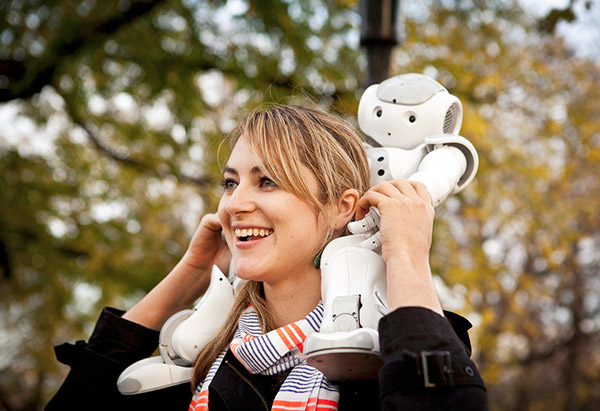Interest
Renowned Robotics Researcher Ruminates on Japan's Reception of Robots
posted on by Eric Stimson
Any anime fan knows that Japan is fascinated with robots. Giant robots battle evildoers in classic action anime, cyborgs appear in more mundane fare, and in real life Japan is at the forefront of robotics research and development. Some robots in anime have even influenced the development of robotics technology in Japan. But why is it that the Japanese are more interested in robots than the West, which tends to view them with suspicion or discomfort?

Heather Knight, a robotics researcher, might have part of the answer. In a report written for the Brookings Institution, a prestigious think tank based in Washington, D.C., she notes that Japanese robots are "cute and cuddly" while American robots tend to be "scary." As an example, she points to American science-fiction stories like Terminator and Robocop, where the robots are threatening and violent, and contrasts them with anime like Astro Boy and Doraemon, where the robots are peaceful and charming. Knight theorizes that the divergence is partly religious in origin. "In Shinto animism, objects, animals, and people all share common 'spirits,' which naturally want to be in harmony," she writes. "Thus, there is no hierarchy of the species, and left to chance, the expectation is that the outcome of new technologies will complement human society." Meanwhile, Western thinking is shaped by Christianity and its strict monotheism, and attempting to create something with life is seen as transgressing in God's domain, a la Frankenstein. "If it is God's role to create humans, humans that create manlike machines could be seen as usurping the role of God, an act presumed to evince bad consequences."

Heather Knight is well-known for her research in social robotics, which studies the way humans and robots interact socially. She was involved with Marilyn Monrobot, a laboratory that creates robots for performances and art. She currently has a stand-up comedy routine with her companion robot, Data. Her full essay can be read here.
[Via Brookings Institution; Image from adafruit]